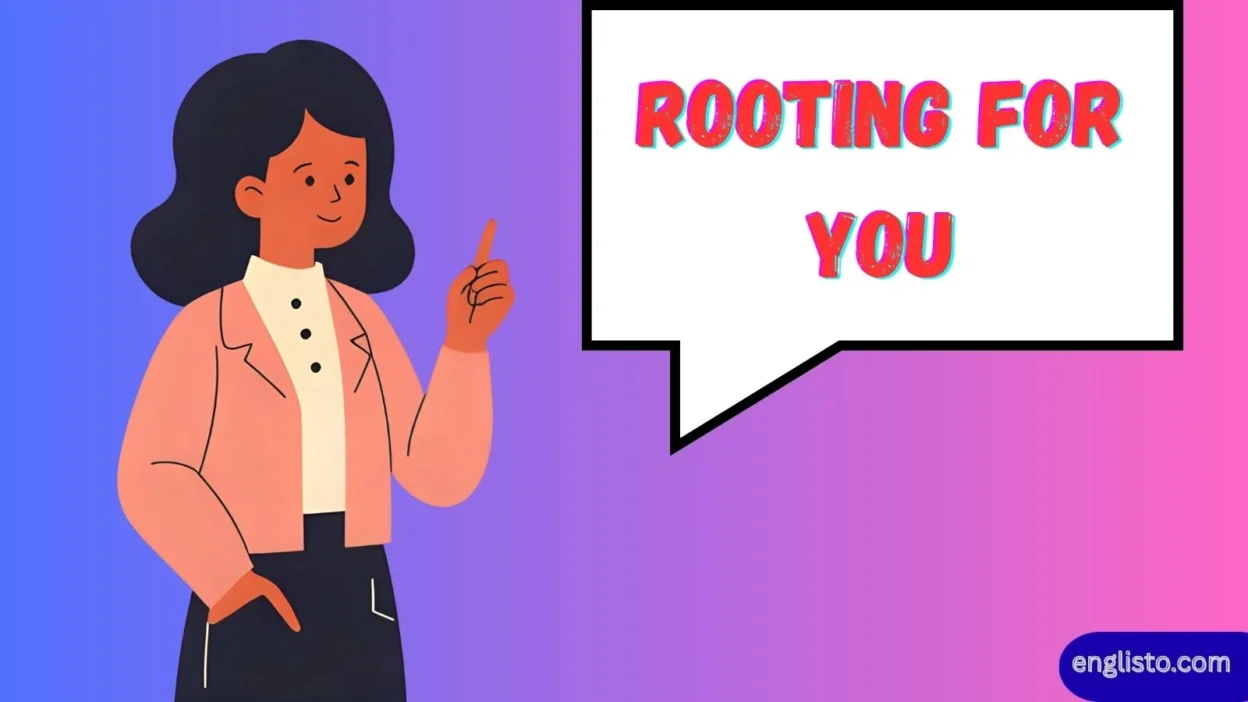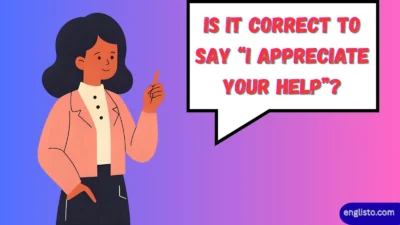When someone says, “I’m rooting for you,” it’s more than just words—it’s a powerful expression of encouragement, goodwill, and faith in someone’s success. Whether it’s a friend facing a big exam, a player stepping into the final match, or a colleague preparing for a career-changing presentation, this phrase carries deep emotional weight. Rooting For You.
In this article, we’ll unpack the meaning, origin, real-life examples, cultural significance, and alternative ways of saying “rooting for you.” We’ll also explore how this idiom has shaped conversations, sports traditions, and even global languages. By the end, you’ll not only understand its history but also learn how to use it naturally in everyday life.
What Does “Rooting For You” Mean?
At its core, “rooting for you” means offering support, encouragement, and positive wishes to someone attempting to succeed in a situation, challenge, or goal. It’s a way of saying:
- “I hope you win.”
- “I’m cheering you on.”
- “I want the best outcome for you.”
It’s an idiom, which means its figurative meaning is stronger than the literal sense of the words.
Example in conversation:
- “Good luck with your interview tonight. I’m rooting for you!”
- “Our team has a tough game tomorrow, but we know the hometown crowd is rooting for us.”
Key Elements the Phrase Conveys
| Element | Explanation | Example |
| Support | Standing by someone’s side in spirit | “I’ll always be rooting for you, no matter what.” |
| Encouragement | Boosting someone’s confidence | “Don’t be nervous about the speech, we’re rooting for you.” |
| Hope for success | Wishing for a positive outcome | “The whole community is rooting for Emily to beat cancer.” |
| Emotional connection | Showing care and empathy | “Your friends are rooting for you through this tough time.” |
Read More: Why Do People Say “Idear” Instead of “Idea”?
The Origin of “Rooting For You”
The phrase has a surprisingly sporty background.
- The word root comes from the Latin “rudere” meaning to roar or bellow.
- In 19th-century America, “to root” meant to shout loudly in support of a team.
- Fans at baseball games were called “rooters,” and their chants were often described as “rooting.”
By the late 1800s, this evolved into “rooting for” someone or something, and it spread beyond sports into daily language.
Fun Fact:
The famous 1908 baseball anthem “Take Me Out to the Ball Game” popularized the culture of fans rooting for their favorite team. Over time, the idiom took on a wider meaning of general encouragement, far beyond stadiums.
Real-Life Examples of “Rooting For You”
This phrase shows up in countless scenarios, from sports and competitions to personal struggles and milestones.
Sports & Competitions
- “Fans were rooting for their team in the final match.”
- “The coach told the injured player: We’re all rooting for you to recover soon.”
Work & Career
- “Good luck with your big presentation. Everyone in the office is rooting for you.”
- “My family was rooting for me when I started my business.”
Personal Life
- “Don’t worry, I know you’ll pass that test. I’m rooting for you.”
- “Dale’s friends were rooting for him to get better after the accident.”
Pop Culture & Media
- Reality TV fans often say they’re rooting for their favorite contestant.
- In movies, underdog characters always have someone rooting for them.
Synonyms and Alternatives to “Rooting For You”
Sometimes, you want to express the same sentiment with a fresh twist. Here are alternative phrases you can use:
| Alternative Expression | Context | Example |
| Cheering you on | Casual, sports, supportive | “We’ll be cheering you on at the marathon.” |
| Pulling for you | Americanized, informal | “I’m pulling for you in this competition.” |
| Wishing you well | Formal, polite | “We’re wishing you well with your new project.” |
| Got your back | Friendly, loyal | “Don’t stress, I’ve got your back.” |
| Fingers crossed | Hopeful, everyday talk | “Fingers crossed, I’m rooting for you.” |
| Behind you every step | Deep emotional support | “Your family is behind you every step of the way.” |
Global Variations of “Rooting For You”
The idea of supporting someone is universal across cultures. Here’s how people say it around the world:
| Language | Translation | Phrase |
| Spanish | Estoy contigo | “I’m with you.” |
| Chinese | 我支持你 (Wǒ zhīchí nǐ) | “I support you.” |
| Hindi | मैं आपके साथ हूँ (Main aapke saath hoon) | “I’m with you.” |
| Japanese | がんばって (Ganbatte) | “Do your best.” |
| Portuguese (Brazil) | Estou torcendo por você | “I’m rooting for you.” |
| French | Je suis avec toi | “I’m with you.” |
This shows how encouragement and emotional support connect communities across borders.
The Psychology of Saying “Rooting For You”
Psychologists note that words of encouragement have a measurable impact on performance and confidence.
- Boosts confidence: Knowing someone is rooting for you reduces anxiety.
- Strengthens bonds: It builds a sense of belonging and trust.
- Inspires persistence: When challenges feel overwhelming, supportive words can reignite motivation.
Example: A high school football player injured on the field often heals faster—emotionally—when the crowd, family, and teammates keep saying, “We’re rooting for you.”
Common Contexts Where the Phrase is Used
| Situation | Example of Usage |
| Sports & Events | “The whole stadium was rooting for the underdog team.” |
| Work Challenges | “I’m rooting for you to get that promotion.” |
| Health & Recovery | “The town was rooting for Harrison’s daughter to beat cancer.” |
| Education | “Her friends rooted for her as she studied to pass the test.” |
| Personal Growth | “Starting a business is tough, but I’m rooting for you.” |
Is “Rooting For You” Overused?
Some critics argue the phrase has become a bit overused in casual conversations. However, its emotional sincerity depends on tone and context.
- If said casually, it might sound vague or cliché.
- If said sincerely, it can carry deep meaning and comfort.
Tip: To avoid sounding insincere, personalize the message:
- Instead of “I’m rooting for you,” try: “I’m rooting for you to nail that big presentation tomorrow. You’ve got this.”
Rooting in Popular Culture & History
- Movies: Heroes often hear lines like “We’re all rooting for you” before their big moment.
- Music: Many pop songs use similar encouragement themes.
- Olympics: In the 1924 Winter Olympics in Chamonix, locals were famously rooting for their athletes—an early global example of community support.
Key Takeaways
- “Rooting for you” means cheering someone on, wishing them success, and standing by them emotionally.
- Originated in American sports culture of the 1800s.
- Used in sports, work, personal life, health, and pop culture.
- Has many synonyms and cross-cultural variations.
- Works best when personalized and sincere.
FAQs About “Rooting For You”
Q1: Is “rooting for you” American or British?
It’s primarily an Americanism, but it’s now widely understood globally. The British sometimes prefer “cheering you on” or “pulling for you.”
Q2: Can I use “rooting for you” in formal writing?
Yes, but sparingly. It’s more natural in casual or semi-formal contexts.
Q3: Is it the same as “wishing you luck”?
Not exactly. “Wishing you luck” is passive, while “rooting for you” implies active support.
Q4: Can it sound insincere?
Yes, if used without context. Always try to connect it to the person’s specific challenge.
Q5: How can I say it differently?
Try alternatives like “Got your back,” “Cheering you on,” or “Behind you every step of the way.”
Conclusion
The phrase “rooting for you” has traveled from roaring sports stadiums of the late 1800s into everyday conversations across the globe. It’s more than an idiom—it’s a heartfelt reminder of human connection, encouragement, and shared hope.
Whether it’s a friend preparing for a tough exam, an athlete chasing victory, or a loved one overcoming personal struggles, saying “I’m rooting for you” can be the boost they need to keep going.
After all, in life’s toughest moments, knowing someone is rooting for us makes all the difference.



